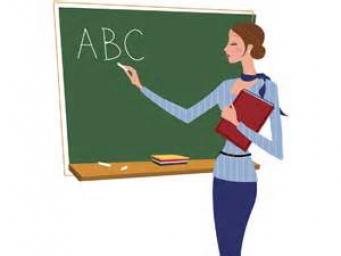Case
I Wish I Were Black!
As a teacher of 5th grade students, I try to make sure that my students have a good sense of all the people and cultures that make up this country. Last couple weeks, I paid special attention to the African American people who have made significant contributions to the US. We read a book written by Walter Dean Myers. We have studied scientists, writers, and political figures. Students were very engaged and interested in the content. Yesterday something happened that puzzled me. Three of my White students told me that they wished they were Black. This was not my intention when I planned all my lessons on contributions of African Americans. How should I address this issue?
Solution #1
I agree with you. Perhaps the teacher could also ask the rest of the class to analyze their characters and heritage and share what they find with the rest of their classmates. I think this would promote unity and understanding. I also think the rest of the class should be made aware of the importance of celebrating all ethnic groups and races in case other students are feeling the same way that the original students are feeling but are too afraid to bring it up to the teacher.
I thought that your post was well thought out and very helpful. I also feel that you should ask the student, "why they would want to change who they are?" Then I would also teach the students about famous inventors, scientists, explorers, engineers, mathematicians, researchers, athletes, motivational speakers or movers, and more that are of different ethnicities. I think it is great for students to get an understanding of important figures who have made their marks on the world of all races, so that everyone can see that it is not your race that determines what you can do in life or if you will be famous or not. To further the lesson even more, you could discuss famous people of different religions. I like how you also discussed doing a character analysis and such.
I had not considered how beneficial it would be to move from this current unit into a discussion of other influential people of other nationalities, races, and religions. I'm sure that many Native American, Hispanic, and Asian students often feel marginalized because their culture is underrepresented in the curriculum.
I like that you would dig down that deep and ask the students why they would want to change who they are. I think that is a great way to put it. I really like that you would explain that black (African American) is just a race and that race does not determine the qualities of what makes a person. I really like that you said that.
I like how you would point out that race does not determine the qualities of what makes a person successful or not. We have talked about his a lot in this class and we need to be teaching it out in our classrooms. Those students need to know that the color of their skins does not matter. If they want to be successful in something, they need to go for it.
I do think that the teacher should pull the students aside and determine the true reasoning behind their desire to be "Black." I think that students at such a young age are often influenced by their peers, society, and social media. I love your idea of having students complete a character analysis on themselves. I think that these students need to understand that you can be successful no matter what your ethnicity is. It would be a great idea to compare their character traits to the historical figures discussed in class. I think the students would really benefit from this activity.
I agree with your comment. I think the students are seeing this lesson more of a competition rather than a lesson on people who have contributed to American history. The focus has clearly been misdirected and needs to come back to what the people did rather than who they are and what their race is.
I think that this is a great response. Pointing out that great qualities can be found in everyone is good strategy. Students should be taught to accept who they are as well as who others are.
The character analysis is a great idea. This would help students to evaluate who they really are and also be an extension to the lesson. We should focus on who the people are and their efforts before we focus on race alone.
I really love your solution, especially the part about analyzing their own character traits. You could really use that opportunity to find similarities among the students and the studied African Americans to point out that race is not solely responsible for "who we are." Though we are certainly shaped by our ethnicities and the experiences they afford us, they are not the sole reason for who we are.
It should never be our intention to get a student to wish they were a different culture or color. Seeing that these students are confused and expressing unhappiness with their culture/color I would ask them to cite specific reasons why they think they would prefer to be black. Skin color is a superficial thing- what really matters are the amazing and wonderful things the black people did. Maybe it would be beneficial to cover standout people from other cultures (Asian, White, Hispanic) to show them that it's about the character and hard work of the individual. There are always examples of famous, powerful and influential people from every race. I also like that it was suggested that they do a character/personality analysis on themselves. Understanding who they are and that they are unique will help them.
The idea of a character analysis is a great idea. It is one I never thought about. Maybe by creating an analysis on themselves they will discover things they like about themselves that are totally separate from race. Great ideas!
I like the idea of a character analysis. One time in middle school the substitute teacher had us complete an exercise where we each wrote down one positive quality about each of our classmates. At the end of the exercise we each had an informal character analysis. An exercise such as this could be utilized individually or amongst the entire class in order to prove the point that each individual possesses qualities that he or she can utilize to impact others positively.
I love the idea of having the students to a character analysis. I also agree that you should point out important people that have made a big impact on their culture. They need to see the importance their culture has on the world.
I agree too that it is important to see what the student has to offer personally aside from judst looking at what their culture has added in the past.
I don't think this one is as big of deal as some of the other cases we have been commenting on here. I would just take a few moments of class to explain why we are studying what we are studying and then tell them race has no effect on what they can accomplish. I would then move on.
I completely agree! The issue is not how great African Americans are but how people can accomplish great things if they work hard and have a tenacious spirit. If one is told repeatedly how great people from a different race are, they might get the impression that they could only be great if they were that race as well.
A character analysis would be a great way for them to understand that color does not make them who they are. Also teaching them about other people that are of different races is a great choice as well. I think this should help them understand that color does not define a person.
I agree. I think teaching students to embrace who they are is very important. I would definitely focus on other successful people of other races and cultures too to show the students that not just black and white people can be successful.
I really like your idea of finding other famous and influential people in America that are of different ethnicities and show them what they have done. I also like the idea of having the students do a character analysis on themselves. I did not even think of that.
I agree that race doesn't determine your impact on society. It is important that students know that it doesn't matter where they come from or who they are they can still make a difference.
I think having the students complete a character analysis is an awesome idea. This gives them an opportunity to reflect on things that they value about themselves. This activity could be beneficial is boosting their self-worth and lead to increased self-confidence. I also think it is a good idea to compare those qualities to famous people too; I don't even think they necessarily have to be American. I think students will be ecstatic to see that there are famous people who share similar qualities with them.
Great idea, I agree
I like this because it's not black and white, it's individualized and open to many cultures and races. Once the students understand that anyone can be great, they will have more appreciation for themselves as well as the people in the lessons.
I really like the way your solution was written, and having student see themselves. Doing a character analysis will be a great way for students to explore themselves and see the good and potential they all have. I think that you need to have students understand that the color of our skin isn't what makes us the people we are and that society curves opinions on who is great and who they believe is not. We need to teach our students that we are all equal and no matter who you are or background you can achieve any thing if you believe hard enough.
Such an interesting thought. I would present it by asking why. I would also emphasis the importance of diversity. I think often times students see something different and want to be a part of it because it is different and seems so entreating.
Very thoughtful response.
I think that the teacher should incorporate all races into the next few lesson plans and let them know about equality. instead of focusing on one race.
Great response. Good qualities can be found in all people. Students should be taught to accept who they are as well as who others are.
Great response. Good qualities can be found in all people. Students should be taught to accept who they are as well as who others are.
I like your idea about not changing who you are. However, I wouldn't use the word "race", because of the argument that race is a social construct.
Solution #2
This is actually a very good suggestion and tie-in to the lesson. By questioning the students, you are allowing them to think about the reasons why they stated they wished they were black. It is important for students to know various cultures have contributed to our society, and by giving examples of other people from different cultural backgrounds, they are able to see more contributions that have been made by different ethnicities. Also, I liked how you summed up the conversation by saying, "After seeing that many DIFFERENT types of people can ALL accomplish great things in this magnificent country of ours, don't you think children from other countries might be saying, "I wish I were American!? And not just a certain color?"
I love your answer, especially since you validated the students' response by asking them WHY they feel the way they do. I also love how your solution flows nicely from validating their response, to sharing a different viewpoint, and then tying it all up with a message about equal rights. I think that's so important to help students see the "bigger picture" of the lesson. Ultimately, I think that your solution would do wonders for really making this lesson "hit home" for the students, giving them the chance to apply their learning to their own lives.
Meredith, I liked how you turned the students' response into a summative review. Moreover, I feel that the questions you asked in your solution would facilitate the students' higher order thinking skills since they would have to compare contributions made by individuals from various racial backgrounds. Finally, I agree that it is important in situations such as this to stress to students that they are all capable of making positive contributions to others and to this country. The teacher could then close the discussion by asking the students what makes someone's contribution meaningful? Is it because it helped someone? Changed something?
I like this solution in the way that students are asked in an non-interrogative way about why they want to be black. I think that bringing up achievements made by different races is a great idea because students will see achievements made by humans not by race.
I really like this as a way to open up the floor to many successful people from many different cultures while at the same time using the students' thoughts on the topic. It also unites the whole classroom under the concept of being American versus being a color. Activities like this can help inspire all students to be their best and to be proud of their culture.
I too would ask the students why they felt that way. I think it is very important to then showcase contributions of many of ethnicities.
I also would have an open conversation with the students. I think it would be beneficial to have an open conversation so they can all see what each culture brings to the table.
Once again, I feel this is a simple explain briefly and then move on situation. Just tell them why you are studying these figures and tell them race has no effect on what they can accomplish.
I think a focus on the achievements is great! To broaden the discussion to other races would be a wonderful idea. It might even be helpful to focus on accomplishments from around the world. Anyone has the potential to achieve great things if they work hard and have determination. Students should understand that where one is from is not important, it is their drive and determination that makes things possible.
I really like your approach to solving this problem. In the United States, we are a like a large "salad bowl," but too often to want to be different cultures trying to accomplish different things. This needs to quit being the focus and we need to be a "salad bowl," with different cultures trying to maintain the same thing: freedom and acceptance.
I like how this solution can really broaden the students minds. That no matter what your background you can do anything, just like these people, so instead of wanting to be them, be yourself and accomplish great things, like these people did.
Solution #3
Great idea. All cultures should be represented so that students start to see all cultures as equal contributors and equally valued. Furthermore, we should work on a blended curriculum that does not focus on separating the races as much.
I do agree it is important to share information about individuals who make contributions from all cultures.
Using people and cultures from many different places in lesson plans is a good strategy. I think that students need to see successful people in many different forms.
"Well-rounded perspectives" is definitely something every class should experience. However, I think the students should also see the ups and downs of each race. Even though one cultural is highlighted in a class does not mean that culture is necessarily the best. This could open up learning opportunities for the students to learn there is great people in all cultures and all people should be valued.
I think spending time on several different groups is a great solution. It is important for students to recognize the contributions of various groups.
I think it would be wise to celebrate people of all color, races, genders, etc. I think sometimes when we teach certain topics, that is all the student sees and does not think outside of the topic we are teaching. If we try and apply some of this information to other races it may help the students see that it does not matter the color, but what matters is who the person is inside.
I like that you mentioned highlighting multiple cultures as a way to explain to students that no one culture is more productive or influential than another. It is important to highlight different cultures so students understand everyone can make a difference no matter what their background it.
Incorporating this 2 week highlight during black history month would be a great idea. We need to incorporate all of the cultures during the year. I would also ask the students why they felt the way that they did.
I agree with your idea and think it is very useful
Solution #4
Erin, I enjoyed reading your response. I do like the idea of focusing on the hard-work mentality of the historical figures despite what ethnicity or culture they identify with themselves. No matter what racial group you belong to, it is your determination that leads to success.
Erin, I find your post to be excellent in defining success. While it is easy to say treat this as an equal parts issue, the reality is that the white race is the dominating race it it does seem insensitive to promote what is socially naturally already promoted. Instead, focusing on stories of success in general seems much more responsible and still equal.
This is a great post! It is important to remind our students that they can be successful not matter what race they are. I think we teach them about people in our history of many different races and emphasize that they are successful not because of their race but because of their hard work.
While I do agree that more and more race does not determine success I do think that certain races have been more likely to succeed economically than others. While I believe for the most part our students are over discriminating against one another based on race (not to say they don't about other things) discrimination does still exist and is still at least in part a factor in determining economic success. While I agree that emphasizing hard work and introducing students to historical figures from a variety of backgrounds is important should probably not dismiss within our own minds the reality of discrimination. Consider the following. Most of us have been in a situation at some point in time where we needed a job. Most of us have also probably experienced or at least understand that knowing someone in a position to influence a hiring decision in your favor is helpful. If we consider the U.S. unemployment statistics for last month we can see that the unemployment rate for white Americans in 5.0% while the unemployment rate for black Americans is 11.5%. If more of the people in a position to make a hiring decision are white and at least some of those people are inclined to hire people they know, who may also be white, then being a minority in the U.S. may still be a barrier to success. The website is linked below in case anyone is intrested. http://www.bls.gov/news.release/empsit.t02.htm
You make a good point when it comes to "combating white privilege." Affirmative Action in the work place is an example of this. As a white individual I sometimes feel the dominate cultures can be made out to be evil and our successes are at times underrated. It is important to keep these students motivated and for these students to realize like you mentioned that hard work regardless of one's background will bring success.
I agree. I think that is the most important concept that this student is missing. It is not the race of the person that determined their success, but their hard work and dedication.
Solution #5
A research project is a great idea! Perhaps they could research contributions to society from their own culture alongside another culture of their choosing. Great way of furthering class discussion.
I think it's important to realize that these are still kids. They were probably trying to be funny or were not being serious.
Solution #6
I think that yours may be the most rational response posted so far. On any given day, I have several students tell me that they want to be art teachers when they come to specials. I wonder how many of them want to be music teachers on music day or baseball players when they go to a game. I agree that diversifying the lessons is a good idea, but I think that you are right that this isn't so much a problem as it is a portrait of the minds of young children.
Your observation of the innocence of that age is on par. In an age where students are trying to find out who they are, it is important that they learn about great people no matter the skin color.
You make a great observation by discussing the impressionability of students in fifth grade. On any given day they "want to be" at least 5 different things. I think that it is important that they understand that they need to embrace the person that they are and the important things that they will do with their lives while appreciating the great things that others have done with their own lives.
This is a great summary of what I believe is going on as well. Students should see the historical figures for their merit and hard work, not their race. In my response I did not address the developmental stage of a fifth grader which you hit right on the head. At some point, possible in that same day, they wanted to be a butterfly too. Obviously, they are understanding how amazing these people were, now we have to get them to understand that it wasn't because of their race.
I like the idea of diversifying the covered ethnicities covered. Another suggestion might be instead of studying a culture to study an event and how people of various ethnicities contributed to that event. For instance, a medical event like the discovery of a cure could lead to historical lessons on how many different groups may have contributed in their own ways.
I like the suggestion of stressing the point of accomplishments as an individual and not basing it on ethnicity. Maybe that should have been the better approach instead of leading the lesson based on accomplishments made by minorities in our society. Again, I have to keep in mind that we are talking about fifth graders and they do tend change their minds and ideas quickly.
I completely agree with your post. Very well written. It is what I said in my response, but put in better words. I think that every race needs to be taught what they have brought into society from every angle.
I agree with you and think this is a good solution
When I first read the case I thought it wasn't too serious of an issue because children like to imagine themselves in the positions of people they admire to inspire themselves and develop their interests. I think this could only become an issue when a student who is not Black continues to mention that they wish they were Black multiple times, even following the end of the lesson on influential Black people. Then I believe intervention is necessary and questioning into why the student desires this is appropriate.
Solution #7
I like that you offered a reading to incorporate into the lesson. Your other idea of having students write things to be grateful of why they are who they are is great as well. I think by getting the students more involved in understanding their culture and how it differs from others as well as how all cultures have their own pros and cons is important to begin instilling.
Solution #8
I definitely agree! The intention of this lesson was to show that all cultures make significant contributions to the United States, not just one. The teacher wanted to engage the students into their lesson my making it relevant to the students. I would take the time to explain this to the confused students.
I completely agree with your solution. That is what we need to reiterate to our students and explain to them that you are not saying one race is more important than the other. You are merely trying to inform them about other races and made them appreciate not only their race, but others as well.
Yes, do not let students begin to think that because of one races achievements that they are better than another. They are younger students and they wish to emulate success. The students are likely viewing this as a means of achieving success by wishing they were in the shoes of another race.
I agree! I think it's important for the students to express to the students their reasoning's why they wish they were black or any other different skin color or ethnicity. It's important for the teacher to understand why the students are making this judgment on African American people. I also feel that if the teacher is going to express the importance of African American people, he may also want to express the importance of other famous figures with different ethnicities and culture backgrounds.
You made a great point that the teacher should discuss with the students that the intent of the lesson was not to promote one ethnicity over another. I think this would be very important to include in any follow-up lessons. In my solution I had not thought to include that in the discussion with students.
I agree! The point of the lesson was not to promote one race over another. This was an opportunity to see the accomplishments made by other people. I think this is also a great time to discuss the achievements made by women or people of other ethnic backgrounds. It is important to see the history of all people and how all people have made wonderful contributions to society.
Solution #9
I like that you would first explain that appreciating other cultures is worthy and that their culture is valuable as well. I think that having the students create projects to include people from all cultures and their accomplishments and also why they are valuable and what they might contribute to our society is an excellent activity.
I think it is a great idea to have the students list contributions of their race and to let them know many different races give contributions to our country.
I felt that this was a great solution and enjoyed the points that you discussed.
Solution #10
I agree totally with you. Students should be told that regardless of your color, you need to make sure that you work hard to accomplish all of your goals. I think that in this classroom, the students may have been impressed with the accomplishments and inventions of those African Americans discussed. I think that the teacher should let the students know that you do not have to be an African American to reach those accomplishments or create those inventions. The students view those African Americans as role models and there is nothing wrong with that. The teacher, however needs to make sure that he discusses that the students should be proud of who they are and strive to do the best they can do.
I really like how you point out that a person is not limited to success because of his/her race; instead it is how a person sets goals for him/herself and what he/she does to reach them. Great point of view!
I like how you stated that let them realize that it doesn't matter what color you are. We all can embrace the contributions that were made and set goals for them to accomplish in their lifetime. I said the same thing about color of our skin not being better than anyone else.
I agree that it should not be the race of the person that is being focused on, rather the contribution they made and the impact it made to society at the time. Certainly, who a person is and where they come from is of interest when talking about people that have made history. But what should be focused on is their hard work, their efforts, and their motivation as it relates to the human race in general, not their personal race.
I also agree that the contribution is the most important point not the race.
Solution #11
I think that is a great idea to point out contributions that have been made by many different ethnicities and encourage them to embrace their own cultural background. I think the point the teacher was trying to make is that everyone can make a difference and be successful and that you shouldn't feel your cultural background determines your level of success, so that is what you would want to convey to the students.
I agree that it would help the students to understand that many cultures have many contributions to this nation. I think is was a good idea on the teachers part to try and highlight cultures that some of the students would not have otherwise known about.
I liked your post! To add to what you said, you could extend this into a research activity where all students research their own culture and come back and present to the whole class. This way students are learning about various cultures and backgrounds as well as their own.
I agree with your statement that no race is better than the other. I think that statement is most important for students. You never want to give them the idea that one race is better or worse than the next because we are all equally important.
Like you had indicated, no one race is more superior than the other. After asking the boys why they made their comment and listening to their reasoning, like you stated, I would also give other examples of other great people of our history to show its based on the characteristics of the individual and not their race.
I agree that it would help the students understand that many cultures have contributions to this nation. I also think it is a great idea to encourage the students to do some research on their own cultural background.
Solution #12
I agree that asking the students and having a class discussion may bring up ideas that you as the teacher might not have thought the students were thinking. If this is a class with a good mix of races, this is the perfect time for a class discussion, especially since they are in 5th grade.
Solution #13
Great observation! These students indicate a desire to be what was once a race looked down upon. He must have done a great job inspiring students by teaching about great African Americans. How profound to see roles reversed!
I also felt as if the lesson inspired or motivated the students. Often children do not adequately know how to articulate themselves. One student could have said they wished they were African American and the other two could have mimicked the response because they felt the same way or because they really enjoyed the information presented in the lesson. Instead of actually wanting to be an African American, perhaps the students were trying to convey that they wanted to be successful or make an important contribution to society. The teacher could present a line of questioning such as, "What aspects about the lesson make you wish you were African American?" or "Did the invention, contribution, work, etc. of the individuals make you think of the wonderful things you would like to accomplish one day?"
Solution #14
I really enjoyed reading your solution! I think this process would be very beneficial for the students and open their eyes. Great post!
Nick this is a great solution! I agree that it is important for students to realize that contributions made by people of all races to our world. I really like your idea of planning a activity to follow that includes multiple important figures who are of various races and cultural backgrounds, but leaving off the names and descriptions so that they return their focus to the deeds done.
I love the activity. I have actually done something very similar in my class. I printed pictures of inventors, activist, and important persons in the government. I also had their inventions, movements they led, and contributions to the government posted. I allowed the students to get into group of 3 and match the items with the appropriate persons. Needless to say, their selections were nothing short of interesting.
Nicely put. I suggested having lessons about different individuals of different races who made contributions as well; however, I think your idea is a winner! This is how I want to teach my kids...to see people for the things that they do and who they truly are and let the color of their skin or their race dictate one's thoughts of someone. Sadly this happens. I think I will surely use this activity.
I think this is a very appropriate response to the situation. This will help students to not focus so much on the superficial aspects of individuals, but rather the important accomplishments. This kind of thinking and promoting these kinds of activities should go a long way in helping us bridge some of the cultural gaps we have in our society.
Solution #15
This is true. I have heard African American children say, "I wish I was white" several times; but, I know that they meant something else. Many times children are "wishing" to be recognized like a specific race or to have material things like a specific race. They are not meaning that they want to actually be another race. I agree and also commented about studying individuals of all races who have made contributions within America.
I really appreciate how you mentioned that students sometimes do not mean exactly what they say. In fact, sometimes they do not know what they have said. It is always good to ask more questions and work to get kids to explain what they mean. This helps them learn to think before speaking and to speak clearly. However, I still do not think this is necessarily a bad thing to say. After learning more what the students meant by this, I would remind them that admiring other cultures and peoples is excellent, but they should be excited about their own cultures and accomplishments, as well.
Solution #16
Amari, I feel that having students research on other Races accomplishments is important and a great activity to get students thinking and feeling their way through history. As students learn more about their own ethnicity and accomplishments of others as well, it helps bring all groups together.
Solution #17
I agree that this is an important age to teach students that people from all walks of life, backgrounds, and cultures have made important achievements to our society. I think maybe even assigning the students some independent work to find someone with a background similar to theirs may also be an applicable solution. They need to learn that we are a diverse country and also be aware of the achievements not only of dominant cultures, but also dominated cultures.
I think this is a great idea and an appropriate one! There are so many ways that all educators can apply this into a lesson and make it specific to their group of students and to their teaching style. Well said.
Solution #18
I like how you discussed talking it out with the children first. It's important to have open communication with your students so that they feel comfortable around you and their peers. An open conversation with the class about differences Races and how different groups of people have succeeded would also be a great team building activity.
Highlighting accomplishments is exactly what the teacher was trying to shed light on. As a teacher, it is important that all races get acknolwedged. By talking to the students first, I would be able to gain insight to why they are feeling the way they are. Digging deeper into all races would help students understand that all races have certain accomplishments and all are equal.
Solution #19
I like the idea of more focus being placed on their contribution and not the color of their skin. In my opinion, someone's color is still being used too often when describing who they are. For example, students often refer to each other as "the black girl" or "the white boy". I have never heard them describe each other as "the girl who made an A on the math test" or "the boy who likes to tell jokes". Why are so many people still being defined by the color of their skin? I agree the emphasis should be placed upon their accomplishments and not the color of their skin. I feel if this is done more often, racial tension and comparisons would begin to decrease in today's society.
I really like your idea of focusing on their achievement and contribution, versus their skin color. Middle school especially, is a wonderful time to point out the irrelevance of skin color. What I mean by this is the color of your skin does not define you, necessarily. Of course, I can't say this for absolute certainty, I realize that it does define you and your background. Yet, just because your skin is white or black doesn't prohibit or serve as a catalyst to the impact you can make in society. Middle school is a time when students really struggle to define who they really are. What a great way to begin this topic of expressionism and self-identity than to really break these race barriers?
That is a great idea. I really like your solution by not even mentioning the skin color when talking about people. I totally agree that what they did should be remembered and not their skin color. Great suggestion!
I think this is a great way to highlight all contributions that have been made in our country. Each person deserves to be recognized.
Solution #20
I like how you would ask the students to clarify what they mean first; this would give them an opportunity to actually consider what they mean as well. In addition, I think it is wise to have them research other accomplishments by those of all races.
Solution #21
I really like this solution, because it focuses on the ideas and actions of the people and not the color of their skin. Too often people are focused on what others look like. Most of the solutions on here primarily just focus on the concept that you should point out that whites also made signifigant impacts and inventions. The main thing the students should learn from this is that it does not matter the skin color, because the reason they learn about the people they do is because of their actions.
Solution #22
Solution #23
I agree that integrating these topics into other units of study would be very beneficial. I think it would be a great idea to complete a unit on both African American and White contributions to America. This would allow the students to see how diverse American contributions really are!
Solution #24
In addition to those you listed I would add females who have made great contributions as well.
Solution #25
I like that you would explain to the students that they are each special in their own way. Also, have them explain to you why they made that comment to get them to think about it more deeply.
I agree talking to students to see why they feel that way is the first important step. It could be they just admired the people in the lesson.
Solution #26
Continuing the lesson and expanding it to other cultures may be a great idea. After teaching about the contributions of the Chinese, the students may want to be Chinese, and so on. After so many lessons, and changing their culture so many times, the students may realize that everyone has played a part in history and it doesn't matter how you look, what matters is what you do.
Solution #27
You are right. I'd much rather have a student wish to be another race instead of having to deal with a lesson to prevent racism. I do not necessarily feel this student was ashamed of his race he was just very interested and excited about the lessons.
Yeah it is kind of a good problem to have if you're going to have one. It shows that the students are kind of getting the idea that every race has value. The teacher just needs to remind the students that their own race also has great importance. It always seems to break down to the same thing for me, and the point to which I'm referring is reminding our students that we're all human, part of the same greater family, we're equal and equally legitimate.
Solution #28
This is a very good solution to the case. I agree that we need to keep the students posted as to WHY we are teaching what we are teaching. Also, I agree that if he did teach something that showcased many of just one race, I would try to incorporate more races or cultures if that were not his intent. If he were trying to showcase one race or culture, then he needs to let the students know why it was important to show them these things.
I think a follow-up lesson on other groups would be a great idea. It is important that students learn about all groups and cultures, not just dominant ones.
I like the point you made that the United States is made up of immigrants and that all people are important regardless of race. The main point in school and education is to learn more about the world around you. When students are so impacted by a lesson that it makes them have a drastic opinion like the students in this scenario, it means you are really teaching the students. I am sure the students never knew about the people discussed, so when they did, they were so moved by what they learned and the impact these people made.
I agree with you regarding a follow up lesson on other races and their contributions. I would ensure that the students know the race of a person does not make them who they are, and any one can have an impact on the world, regardless of their race.
Solution #29
I agree with you, I think that it's important to point out to students of this age that all people have value and skin color does not make any one person more valuable than another. Also it's important that you show them there are many admirable figures of every color shape and size.
I agree with your comments. It is such a valuable skill to be able to find value in all people, no matter where they are from or what they look like, but looking instead at; Are they kind? Are they intelligent? Are they creative? Do they value others? Do they have respect for authority and others? Do they make wise choices? I feel as though we should be teaching our students to focus on these things.
Solution #30
I think you really "hit the nail on the head". It's crucial to explain to students that just because these individuals are black, doesn't mean that their own backgrounds of skin color (white, mixed, hispanic, etc.) have an impact or serve to be greater than theirs. Breaking this racial barrier means providing equal attention to all of the races evident in your classroom so that all the students feel like they are also apart of a bigger goal. While this may be harder to do in terms of historical relevance, I think it's still possible to show this progression over time.
I agree that the poem should teach about the diverse cultures in our society. We need to teach students about the challenges all people had to face that even today we face our own challenges. We need to teach how to unite and overcome some of the barriers we are face with in our lives. Elizabeth Comella
I like how simple your solution is to the issue at hand. I agree that the students should first be questioned on why they wish to change who they are. Next, the teacher must explain that each culture has people who have achieved significant achievements. The teacher must also teach and ensure the students that all cultures are different but contribute to society in various ways. I believe that this solution will assist the teacher in addressing the issue.
Solution #31
I agree this would be a great bride into another lesson about other historical figures, obviously you taught an engaging lesson to these students hopefully you will be able to show them how important figures of other races are as well and help them celebrate who they are.
SInce the students did enjoy and obviously learn a great deal about people of other races have impacted society, then you could further your lesson into the teaching of other races. I feel that you could have the students break off into teams to research famous people who have made their marks on society who are of different races and who have not yet been discussed in class. Students could create a biography of the person that they research and present to the class as an oral presentation. I would have students include pictures in their presentation on either a poster board or with technology in the form of a PowerPoint or in Animoto. Then students will see that people of all races are important and have made impacts on our society. These will be a very inspiring lesson to students as they will realize that it is not the color of your skin that determines what mark you make on the world.
I agree that this would be a great reason to lead into lessons about the contributions of individuals of other races, cultures, and various groups. I think that, because this has been raised, it is important that they see that it is important they understand the purpose is not to set one race or another above the others but to appreciated the great things that have been done to make the world the way it is today.
I think it is important to mention why schools focus on black contributions (explaining the significance in light of the racism in this country historically) but I don't think it is necessary to specifically focus on contributions from other people based on their race. I would move away from the skin and instead just discuss their contributions as people. It would be easy to incorporate gender, race, ethnicity, local, etc. form that point to move away from the race card.
I think that is a great idea and I completely agree on focusing on what their heritage did for the United States as well.
I completely agree with your comment. I was going to say something very similar to this. If the teacher was able to strike an interest in their students on a level that they want to become that race, the teacher needs to continue introducing their students to other cultures in this same way. Even the cultures that teachers seem to overlook because they are so focused on teaching about cultures different from theirs. Some students do not know very much about their own culture which could be why they wanted to be another race other than their own. I would also take the time as a teacher to teach my students about why we should take pride in our individual race and cultures. I would explain why they need to embrace who they are while always continuing to learn about the different people around them. I would make it clear that we, as people, need to keep an open mind at all times just like the students did during that recent assignment.
Solution #32
I like your response! I agree that a first approach of asking students why they feel this way is important. All too often teachers simply react with a gut response rather than letting students speak and explain their opinions. It is also important that teachers explain to students why they are choosing certain lessons and teaching different material.
I like that you would ask students their opinions first. We do often just tend to try different approaches and change up lessons instead of asking students why they think what they think. I feel that by addressing how the students feel and what is making them think being one race is better versus another is important. This is allowing students to express themselves and start big collaborative discussions.
I think it is important that you would explain it was not these people's 'race' that made their actions great. I also feel that it important to explain how people from all races have done great works to help make our country great. Great post!
I really liked your response. I essentially said the same thing. Unfortunately we don't get to choose who we are or where we came from. It is important to stress that many cultures have made significant contributions today's American culture. I would stress that African Americans, Caucasians, Hispanics, Asians, and Native Americans have all helped mold who we are as a society today. It is truly amazing how cultures like I mentioned in the previous sentence get a few pages in a text book and a few days out of the year to be recognized. I believe in ethnic studies and that all cultures should be included in the teaching of every subject, not just history. There should be some type of dualism taking place in today's classrooms. By that I mean that not only should the power elite culture be taught for economic mobility, but other cultures should be celebrated and students should be educated on every groups history, traditions, and beliefs. Great Post.
Solution #33
I like how you referred to history "not happening in a vacuum." Sometimes teachers only teach about various groups and cultures during pride weeks or months and ignore them the rest of the year. Everyday curriculum should address every group involved regardless.
This is a very good way to state how it should be discussed. And I agree totally. History was not created in a vacuum and should be discussed globally and ethically. Regardless of racial connotations. Good job!
I definitely agree with your comment about reminding the children that all the successes of the people they are learning about didn't happen over a year or two, but rather years, centuries, decades, etc. Reminding them that there is good in everyone and anyone can achieve the same things as those previously learned about, being black, white, Asian, etc.
This is one of the best answers I've read to this problem. I love how you stress the interlocking of cultures and societies throughout history, and you're very right! We're all in this together and we're all human. That is a concept that many often forget after the dividing lines of culture and race come into play.
Solution #34
Good points Nikki. I think the child probably said that because that was the focus of the days lesson. So if this comment bothers you maybe start with something like Nikki said. Every race has great leaders.
I agree Nicki that this is a great idea to implement in the classroom and that the students misunderstood the point of the lesson. Your solution to remind students of various figures in each culture is a great solution to aid the teacher in this issue. I feel that this can provide a quick fix to the problem and ensure that the students maintain respect and engagement throughout the lessons.
Solution #35
I agree that the teacher should explain that every culture has an important part and place in history. It is also important to teach them that people are great because of who they are (what's on the inside) not what they are (skin color).
Solution #36
I love your approach and think it is a great idea to take this opportunity to talk to students about being happy with who you are not matter what the conditions. Focusing on how the scientists, writers, and political figures inspire them is a great way to get them to start thinking about what they want to accomplish in their lives.
I agree that it is important to let the students know that they should not wan to be anybody else and that must like themselves for who they are. I would also take it one step further and show them that all cultures have great people in them and that it's not about the person's culture (or skin color) but about the greatness on the inside of them.
Solution #37
I understand your point. We often forget the interconnected nature of our planet and the way we interact. We are all human and we need to keep that in perspective. Having a month dedicated to one race can be a little much, but it does show love and care to those in our society that share the same racial history.
I agree! The thing about concentrating too much time on my race's history sends the message that some races and cultures are more important than others. Perhaps you could have students research and plan a "Celebration Month" about their own cultures. They could present as a paper and project and share with their students.
Solution #38
If the white students were so intrigued by the accomplishments of the African Americans, I would try to figure out what exactly sparked their interest. In doing so, I would expand on this concept within my own lessons. I would also have the students find out as as much as they could about their topic of interest. This could lead the students to discovering many other ethnicity's contributions to society.
Solution #39
You made a great point. Those historical figures didn't do great things because the color of his/her skin, they did great things because they were great people. Emphasize the idea that all types of people are historically significant because of their character, not their skin color/gender.
While the lesson started as an exposure to different races and cultures, I agree with you that the contributions were not due to those factors alone. It sounds as if the teacher has been (or will be) exposing students to historical figures from many people groups. Therefore, I think you have a sound suggestion in reminding students of other individuals from others backgrounds studied. Perhaps you might ask them why the skin color of those contributors were not as appealing to them.
Solution #40
Solution #41
Michael, I like your idea of holding a class discussion over the topic. I think it is important for all students to be proud of their heritage and where they come from. The scenario options are also a great addition to help relate the material back to their own life.
Solution #42
You could explain to the students that people of their cultural identity have also made contributions and give them examples. Creating lessons that focus on cultural singularity may in fact have the opposite effect of what the teacher wanted. The teacher may be able to avoid this by teaching about different cultures in an inclusive and collaborative way. Teaching about the contributions of different races side by side in the same lesson.
Solution #43
Solution #44
Solution #45
That would be an excellent assignment for the students to research their heritage. It would be a great assignment because the students would learn for themselves individuals who made contributions. The students could also find an individual of their culture who made a contribution and research that person.
I really like that assignment and I think it is important for students to know that they can make contributions by just being themselves and helping to fix a need.
Solution #46
Great comment. I agree that students should be taught that a race does not matter when it comes to accomplishments or being remembered. I believe we have a lot of influence over students and it is our job to help them understand all different cultures and races. We have to make sure that one topic is focused on more than others. In the situation with the white students, the teacher might want to show them how others, people outside of the black races, achieved the same goals or whatever he was teaching. I do not think it was a bad thing for them to say what they did, but I think they might be confused that lots of different races accomplish historical things.
It isimportant that the students understand and other races. They need to know what diversity is and that diversity is what makes one or a group unique from another group. It is also important that the teacher keep his/her identity of his/her cultural diversity.
This is an excellent point. I completely agree that the students need to realize that people's accomplishments have little to do with their race. With determination and willingness to work hard and go after dreams, we can do anything. This is a great teaching moment for our students because we can show them that motivation does not always have to be extrinsic. Intrinsic motivation helps lead people to accomplishing their goals, regardless of culture.
Solution #47
The students who wanted to be black because of all the famous black people who have made major contributions to society, should look back on all the famous people from their own culture who have also made contributins to the world and their own personal culture.
Solution #48
I completely agree with your proposed solution. As I was reading through the case study I also felt that it would be important to discuss the contributions of people from different ethnic backgrounds with the students. However, I had not considered that the students' age or maturity level might have prompted their desire to be African American.
Solution #49
I like your advice...I do not think that this is a negative thing, but a great way to educate students that race did not make those people special, instead, it was their contributions to society. They could have been purple and their contributions would have been worthwhile! Definitely, make this a teachable moment to bring about that race doesn't matter, it is what people do instead!
I really like that you removed the race from the equation and recommended pointing out that their actions made them great not the color of their skin. I feel by the students being exposed to the concept that any person can make great contributions to this world they will be motivated regardless of race.
Solution #50
Solution #51
I agree with solution it is important you show the students how every race has contributed to the development of history.
Solution #52
Solution #53
Solution #54
Solution #55
Solution #56
Solution #57
Solution #58
I really like how you stated that you would have asked them to give a reason behind what they said. I think that would make them think about their comment.
I think the wax museum idea would be great. It would especially cool if the department could work together on it and supply some costuming materials for students to use if they chose. This would even the playing field for students in poverty or other students that do not have access to these materials. I agree that other groups should be covered, and that women are an important group to cover. I would probably clear it with administration first, because you never know how people will react to things, but I think it would be interesting for all of the students to have to choose someone of a different gender to have to portray. It could really help students think about what life is like as someone of a different gender.
Solution #59
Solution #60
I proposed a similar solution. It's important that students (and really anyone) have pride in their own culture and/or race.
Solution #61
Solution #62
Solution #63
I believe this too is an unusual situation. Instead of discussing with those two students about great accomplishments that white people have made I would discuss with them how there are people from all cultures and backgrounds that make significant contributions. You do not want the students to feel that one race is more noteworthy than another.
I too find this response to be unusual. I think that students need to understand the importance of each culture as a whole and what they contruibuted to our society. I think that each culture/skin color as contributed both the good and the bad. By discussing these facts with your students, they will have a better understanding of what is true and what is false.
The situation is unusual to you but very normal to me. As an African American growing up in South Ga, I often times felt like the white kids in the case that wanted to be black. The only thing that made me appreciate my culture was that I had a strong family foundation that taught us about our history. My father I know read the Roots and Malcolm X several times growing up. I learned about the achievers and successful African Americans from my family and personal reading. I can vividly remember learning about a few well-known African American heroes. I also remember that we were not allow to have a dance school at my high school, because the school felt that the dancing would led to misbehaviors. It was very strange when I went to college, which was a historical black college that they had a dance team and all the sororities and frats were doing the dance that was prohibited from my high school "Stepping". There were actually step shows that were judge based on certain criteria. I believed that multicultural education show be implement in today's school curriculum. Accepting and understanding diversity is significant in succeeding in today's society.
Solution #64
I agree a private discussion may be an excellent solution to the problem. At such a young age, the students may be unsure of the contributions of their culture. An explanation from the teacher could certainly help. Who knows, it may even encourage the students to find out more about these other people on their own!
I agree a private discussion may be an excellent solution to the problem. At such a young age, the students may be unsure of the contributions of their culture. An explanation from the teacher could certainly help. Who knows, it may even encourage the students to find out more about these other people on their own!
Solution #65
I think that focusing on multiple cultures is a great idea! We want to teach our students history from various cultural viewpoints, but we do not want them to feel guilt for the actions of their culture in the past. Teaching about multiple cultures in history is the best way to help our students appreciate history many different cultural perspectives.
I really like this idea of teaching multiple diverse groups. This will allow the students to see how interesting each culture can be once you learn the history and traditions. However, I think it would be important to allow our students to focus on their heritage so they can learn more about their own traditions and hopefully appreciate where their family came from. I read a post earlier, and now I can't find it or else I would comment on it, and the person suggested that the teacher assign the students a project to research his or her own culture and share with the class. I think this is a great way to get students involved in their culture.
I really like this idea of teaching multiple diverse groups. This will allow the students to see how interesting each culture can be once you learn the history and traditions. However, I think it would be important to allow our students to focus on their heritage so they can learn more about their own traditions and hopefully appreciate where their family came from. I read a post earlier, and now I can't find it or else I would comment on it, and the person suggested that the teacher assign the students a project to research his or her own culture and share with the class. I think this is a great way to get students involved in their culture.
Solution #66
I agree. It will be important for the teacher to make sure that all cultures are discussed; not only race, but gender, religion, and other aspects of our culture. If the teacher does this, he would probably get the students to see a clearer picture of what America is made up of.
You have made a very valid point of this case. Regardless of whe the case refers to, students should see all individuals as equal and not superior or inferior. If we look at many children discussions, they do not realize that color is a part of daily living. It is the adults who bring color into the conversations and open the eyes of the chldren to racial issues. Therefore, I would be very careful on how you explain ethnic stories to students and I would also explain that one race is not superior or inferior and it is not your intent to make them desire to be another race.
Yes, I think other cultures should be expressed as well to show that all cultures/races/genders have done amazing things and no matter your gender or ethnicity you can be proud of it.
Solution #67
I see your point. So here is what I think the teacher should do: he can start by assessing whether or not his cultural bias was at work. Sometimes, whether we choose to admit it or not, our cultural frames of reference do influence what and how we teach.
I could not agree with you more. I feel that all cultures that have made contributions in developing American culture should be taught evenly. Emphasis should be placed on every culture. I also feel that it is unfair to neglect cultural groups who have made significant contributions to this country. I feel that every major cultural group has made some form of contribution to American society at some point in history and that Hispanic, Asian, and Native American cultures should be included in today's classrooms. All of these cultures were interconnected with Anglo-Saxon and African American culture to make America what it is today. I believe that this is what should be taught throughout the school year. We shouldn't jump from one culture to the next as it places the emphasis on just one group. We should discuss how they have all contributed been mixed together to make America what it is today.
Solution #68
I also feel a solution to this situation is to have the students hone in on what it is they found so admirable about these historical figures so that they too can aim to accomplish such greatness. It is important to ensure that the students feel pride in their own culture and race and know that regardless of one's background, hard work and determination will achieve success.
Solution #69
I, too, feel it is important to share the contributions made by all ethnicities in America's history. As you mentioned, this can pose quite the balancing act for teachers. I think that instead of focusing on one race of people to talk about for a week or two, teachers should discuss particular topics (i.e. famous war heroes, politicians, inventors, etc.). Then discuss how people from different races contributed to each particular topic of discussion. This would make the lessons more balanced.
Teaching lessons that highlight contributions made by other minority groups would be excellent! That way the students who said they wished they were black could see how important other cultures, besides black and white, contributed to our history as well.
My own son has said to me before that he wishes he had brown skin because that is what is est friends in class look like. It is normal for kids to want to emulate people that they like and respect especially when they are young. It is also alright for a teacher or a parent to discuss positive aspects present in all "races" in order to signal to young people that differences between people are nice. I agree that our approach to teaching about significant people in a class setting needs to be more holistic. If the opportunity to discuss significant figures in history presents itself in class we should try to include a variety of historical figures each time so that students see both significant figures that look like themselves and that are different from one another.
Solution #70
I agree with your solution and believe that the topics of hard work and determination should be stressed above racial identity. One of the problems with teaching about history of a particular racial or cultural group is that some students will only relate success with that particular characteristic. Instead, we should inform our students that these people succeeded and accomplished many things because of his or her work ethic and passions.
I like that you stressed more qualities about the people being mentioned in the lesson than their skin color. It would be a great way to have students take an objective eye towards people and their accomplishments. I also agree with the previous comment about the difficulty in teaching a specific racial or cultural group trying to avoid it being associated with a particular characteristic. In both cases it is more important to stress the accomplishments or characteristics of the person than their skin color.
I agree that you should make sure that the focus of the lesson is turned away from their skin color. It is not their skin color that makes them so important, but it was their hard word and determination that made them do what they did to make a difference.
I agree I think the comment from the three white students does deal more with self-concept and self-acceptance. This would be a great learning opportunity for all students to gain self confidence and accept themselves for who they are. They must realize that our circumstances do not define us, and we must overcome everything we think is holding us back. They also may be confused by the differences between white and black cultures.
Solution #71
In addition to your suggestions, I think it would be beneficial for the teacher to incorporate studies of historical figures from other cultures in their classroom discussions, too. Students should see that all people, regardless of their culture or race, have greatness within them. When students only see one race, that becomes the race that they connect with. It's crucial, though, to help students open their mind about many cultural groups.
Solution #72
I love the idea of having students complete a project where they "live a day in someone else's shoes"! This would be an eye opening experience :)
Solution #73
I agree that we should not focus solely on one race, but I also think highlighting people's race so often creates the issue that we are trying to avoid. Focusing on race daily will create separation instead of promoting unity. Focusing on skin color is like focusing on eye color. If we want to help our students better understand themselves and each other then we have to stop focusing so much on what's on the outside.
I agree that the teacher should not spend too much time just on one race, whatever what race might be. Also, better understanding why the students want to be black would help create the next lesson. That lesson could be on multiple cultures and how they can do the same thing.
I think your solution about trying to understand why they wish they were black would be a great choice by the educator. It is necessary to talk with students about these difficult topics to help them understand the diverse nature of the world we all inhabit. If the teacher does not address the issue, it may continue to be a problem that the students experience in the future. The three students could feel inadequate in their academic goal of reaching success, due to the prior knowledge they were presented that only African Americans can become prosperous professionals.
Solution #74
Kimberly, Well said; I certainly share your sentiments. I would add this, the teacher should make light of the conversation and ask, "Why?" In doing so, he would be gathering more information to inform his instruction. Now here is the thing, if the students give a reply that is perceived as a negative self esteem issue, or a sense of inferiority, then the teacher certainly needs to emphasize in his lessons that we each belong to a particular ethnic group that has its own identifying elements that are in no way superior over the other despite the fact that others representing these individual groups may try to project such a viewpoint. Also, I would be honest and let the students know about racism and discrimination to a degree that they can handle. Nonetheless, no matter the teacher's approach, his or her number one goal should always be to ensure that his classroom environment is a safe place for his or her students to be comfortable in their skin.
Solution #75
That is a very good way to look at it. We all get excited when we learn about something new and exciting. We want to be a part of it and if we can't claim that our race or part of our heritage helped create the place we live today then I would probably feel the same way about wanting to be a different race. It is important to acknowledge all types of race or culture when referring to how this country was built.
Great idea! Encouraging students to learn about how famous people overcame the hardships in their lives to achieve their goals is a great way to teach children. Everyone has dreams for a better future. Encouraging students to learn about others and how they solved their problems creatively will help prepare children to face the challenges of their futures.
Solution #76
Although I agree with your solution, you will have to be careful when continuing to identify others by their color. If you have students from other racial backgrounds, this may seem as their race not being as important as blacks or whites. If time allows, one way to conclude this lesson might be to give students the option to conduct research on finding someone in their own race who has made significant contributions to society.
I agree that it is important to remind them that there are a variety of different people from different cultures who have helped shape American society into what it is today. I would urge you to be careful when using the terms 'white' and 'black' as this is a very sensitive subject. I wouldn't focus so much on the color, but more on the fact that it wasn't just the dominant culture that shaped our history and how we viewed things here in America. I do feel that the students should understand that there were many other cultures that are unique, valuable, and rich in tradition that we often never learn about. I would take the opportunity to begin teaching this class about other cultures and their contributions to American culture. I would urge that today's culture is a mixture of many different cultures and that our traditions, beliefs, and history have been affected by many people.
I appreciate the idea of dominant/non-dominant cultures who shaped the issue at hand. I think at times we all get hung up on the idea of white vs. black and the sensitivity that goes with the subject. By approaching the issue from a group is primarily associated with an event and other groups contributed X-Y and Z, the situation is able to be looked at with much more clarity than when cloudy terms are included that incite feelings from within.
Solution #77
I like that a lot! It is a good point to ask the students why they wish that. Because your right, they probably wished they were a different race at that time based on what the particular individuals did and achieved that they learned about. It is very important to point out to them that everyone is the same and capable of the exact same things no matter what race or culture they may be a part of.
Thank you for your encouraging comments!
Solution #78
Solution #79
I'm curious why you would pull the students aside to discuss that we are equal instead of discussing it with the whole class. I think it is something that all the students could benefit from discussing.
Solution #80
I really like your comment. I agree that it is great that the teacher embraced and taught different cultures. I don't think the teacher should feel bad for their student exclaiming that they wish they were black, but rather applaud them for feeling so interested. We all wished we were someone else especially in the 5th grade.
Solution #81
I think that embracing other cultures, as well as, our own is very important. Students need to be comfortable with the skin they are in, but also aware of other races. For the students to say they wish they were black, I would have a heart to heart with the students. There must be a significant reason why they felt this way. They may need to know that others with their own race have accomplishments too.
Solution #82
I think that your solution is a very good idea. It is similar to mine. Although it is important for students to learn about other cultures, there should also be lessons included to help students appreciate their own cultures because that appreciation is as equally important as learning about different cultures.
Solution #83
I agree with your take on the situation. All of our students today need to know the contributions of all the cultures in our country to see that not one or two races make a difference. Even if you don't fully teach it you can have a project where students discover the contributions of other cultures and present it to the class. Then you can build off of that to have discussions of other cultures.
Solution #84
I agree that the students probably got really into the lesson and felt inspired by what the teacher was teaching. I would also reinforce that people of all cultures have contributed to this country possibly by making a week out of it.
Solution #85
A research assignment of various historical figures of different backgrounds is a great idea. I also suggested having a class discussion where students of different backgrounds talk about ways they are treated different or ways they see OTHER students treated differently based on race/religion/ethnicity/gender.
Laura, I like your recommendation of discussing this further with the students. I also think it is a good idea to incorporate stories from other nationalities as well to give students a good picture of America. After all, it is called "The Melting Pot". The idea of a research project sounds fun, I think it would help them gain a better knowledge of some of America's historical figures.
I think your suggestion about a research project on historical figures is a great idea and one that could create a lot of different discussions in the classroom. I think your response was great!
I really like the research project ideas and the class discussion. I would assign different people from different time periods so that part of the discussion could be a compare and contrast to find out how things have changed over time.
Solution #86
Solution #87
I agree- expanding the lesson that students learned to make it applicable to them just as they are would be more beneficial.
Solution #88
Solution #89
Solution #90
I agree that this situation probably does not need to be over analyzed. I doubt that these students are ashamed of their own race. I would remind these students that everyone has people from their own culture that are significant.
I like your solution to this problem. I think it is important for students to realize that we overlook a lot of good information and people while teaching history. I would also find it interesting to know why students wanted to be another culture beside their own. Based on their responses I think I would find people and information to show them that their are people from their cultural background who have done amazing things as well. Just adding to the teaching opportunities from this case study!
I also agree that this situation should not be over analyzed especially because of the student's age. Younger students may not see wanting to become another race as anything other than being different. I think you have some good ideas. It sounds like you would give them academic information about people who have achieved a lot that are over looked. I think that would be a great idea.
Solution #91
I agree that it is refreshing to see so cultures so widely accepted. It seems as if the teacher has done an excellent job of educating the students on different cultural perspectives. I agree that the teacher should discuss historical figures from a variety of different backgrounds who have been successful in the U.S. Students need to be aware of the fact that they do not need to change the color of their skin to be successful; they can make an impact by staying true to themselves.
I had a similar post, except I would have the students discover and research about other people who have made a difference in our country. That way the students are exploring and discovering their own cultures contributions and the contributions of others. They could then present it to the class, so that everyone can learn about the different people who have made changes to our country.
Solution #92
Justin, I definitely think it is important for the students to be reminded that people of a races have made contribution to our world and should all, like you said, be viewed as equal. They need to hear often that working together is what will really make our world prosper!
Solution #93
Solution #94
I concur with your statement that the teacher should "emphasize the larger point; regardless of race, color, ethnicity, creed or orientation, everyone has an opportunity to make contributions to improve life for future generations". The educator's intentions were to help students learn more about the contributions of minorities to our society; however, the lessons we implement in the classroom do not always reach our planned destination. I applaud her for helping her students learn more about African Americans, but I believe the teacher should incorporate various figures that have cultural differences from each of the people that are being explored in the lessons.
Solution #95
Solution #96
Solution #97
Solution #98
I like your viewpoint...maybe they were inspired!
Solution #99
Solution #100
Solution #101
I agree, it is wonderful that the students found another culture significant and that is why I would never try to sway them from their statement only let them know every culture is important and that the purpose of the lessons were to allow them to understand the diverse cultures in the U.S.
I agree that admiring another culture is certainly not wrong, and I would remind the students of that. I also think it is good to then encourage those students, and maybe the entire class to research other contributors to that field of study. A good idea would be to have each student research someone from a culture different from their own and one from a very similar culture. This would be a good way to show students that many people from many cultures have formed history and have contributed to discoveries, which was a focus of the classroom.
Solution #102
I like your idea about doing a personal cultural assignment. I think that this may help students recognize their own culture and allow students an opportunity to show off their heritage. Both sides of my family are Scottish and I never got to learn about or show of my heritage at school. My parents told me I was Scottish and showed me the clans I came from and the tartan designs of those clans and I would have loved to share that at school.
A personal cultural assignment sounds much needed in this classroom. Students can identify with others that were successful and that share their race. It will help them understand their history a bit more too. The white kids may have felt that African Americans were successful because the light was shed on them. By the students identifying others that share their race, they can embrace their race easier and share with other classmates too.
Solution #103
Solution #104
I am not sure that focusing specifically on a different people group will quite do the trick here. I think the best practice is simply to make sure to include everyone who has made significant contributions to our area of study (depending on the grade level and content you teach). Possibly even allow students to do independent projects on individuals who have made significant contributions to society and allow them to choose their own individuals and discuss their positive contributions. If we could start to focus not on what makes us different but what makes us similar (our humanity) it may not come as such a surprise that people of all cultures and backgrounds have made positive contributions to human society.
I agree with the above comment. In order to prevent racism, all arenas of ethnicities would need to be covered.
Solution #105
I like that you pointed out that the teacher should ask the students why they wished they were black. Talking about it and holding group or class discussions is a great way to understand the "why" behind many students thoughts.
Good idea on pointing out other scientists and political figures of other races. This would allow the students to see that, anyone, regardless of race, can accomplish great things.
Solution #106
Solution #107
Solution #108
Solution #109
I would definitely agree to hit on all ethnic backgrounds. Maybe allow for a research assignment assigning each student a different ethnicity.
Solution #110
"what these americans accomplished and not what color of skin they had" What a wonderful idea! Let's focus more on what we, as Americans, have achieved instead of which color American did what. Not to diminish any race or culture, but I think in some cases race is irrelevant.
Solution #111
I also agree with you on this. I said that we should embrace all cultures and the significant contributions that people have made. This allows all children to be proud of who they are and what they can accomplish in their lifetime.
Solution #112
Solution #113
Solution #114
Solution #115
Solution #116
Solution #117
Solution #118
I like your idea of creating a project for this. However, I would take it one step further and include different races, colors, genders, ages, etc. This way students could research and create a project on their assigned person. At the end of the project, students could share what they had learned with the class. Not only does this work on the project based learning skills, but it would also allow the entire class to see that anyone (no matter what race, gender, class, or age) can make a difference.
I love the idea of a project! I think that would allow them to explore the cultures on their own and truly give them the power of learning.
Solution #119
Solution #120
Solution #121
You could also have the students research not only powerful black leaders but also different cultures. What a great leading statement into a writing assignment!
Solution #122
Solution #123
I too said that this lesson would lead into a great research project. I didn't think about bring into account statistics into it. Great idea!
Solution #124
Solution #125
Solution #126
Solution #127
Solution #128
I like the idea of talking to the students and letting the know that skin color does not define who we are. I think I would also talk about their culture and the importance it has impacted on the world today.
Solution #129
I think your idea about pulling the students over to you individually is probably a good idea. It is important for us as educators to understand how and why students feel the way they do about their culture, as well as the culture of others. I also think it is important to make time to discuss many other cultures because until the students are informed, they truly don't know. They are little sponges...soaking up every word. Which is another reason why it is imperative to use primary sources as part of our instruction, and not just our own facts that we "know," and not just textbooks either.
Solution #130
Solution #131
Solution #132
I also felt that this was not a huge issue. My solution was to talk to the students and discuss why they "want to be black" and refer back to people of other races that have had similar successes. Let the students know that can be successful no matter what color they are. I agree, that if it comes to a point where it is a big issue the counselor may need to be brought in and the students can work through it with support from teachers and other school members.
Solution #133
Great solution! I said something very similar because I feel that it is not that uncommon for children and young adults to "wish" they are something that they aren't. I do feel that this is a teachable moment and the teacher can connect back to a successful person of a different race and explain to students that they can be successful no matter what color they are.
Solution #134
I agree that many children wish they were someone they aren't. It is also important to reassure the students that they are accepted and capable exactly how they are and they don't need to change in order to make a significant impact. I also agree that it is important to explain that people of all races can be successful, and the race of a student does not determine his or her success.
Solution #135
Solution #136
Solution #137
I agree that this would be good to do in order to address any other students who may feel the same way, but I also think it would be important to talk to the three students who said that they wished they were black also. Students will often say things to a teacher that they wish to talk about with someone.
Solution #138
I think that is a good idea, to do a segment on all cultures and races including for those that are white.
Solution #139
self reflecting on your own race and comparing those to others is a great idea. It will really give the class some insight into other cultures
Solution #140
It would also be cool if you did a lesson on different social classes and what MAKES them in those social classes (SES).
Solution #141
An interesting solution, but clearly well laid out and reflective. I think that you make a good point to use their statements as a discussion starter, concealing their identities of course. Sometimes situations such as the this are teachable moments waiting to be used. You make some very solid points that I think all people need to realize.
Solution #142
Solution #143
I like how you would get the teacher to just address it head on! You didn't seem to let the comment bother you which I think makes you a very natural teacher who can 'roll with the punches'.
Emphasizing what successful people do is a good idea. Success has nothing to do with race or culture. It comes from people who make goals and do what it takes to reach their goal. They never give up. To help show this idea you could show successful people from different cultures and all walks of life and explain how they became successful. You could also explain how these people did not let their race, culture, or circumstances hold them back from they wanted.
Solution #144
Seeing if the students wished to be black based on wanting to be different or on the historical background would be a interesting conversation. If it were just to be different a class discussion could be help on how we are all different not just based on our race and if the students wanted to be black based on the cultural background, discussions could be held on other cultures. Good solution!
Solution #145
Solution #146
Solution #147
Solution #148
Solution #149
Solution #150
The students are interested in accomplishments from the race being taught, why limit it to black and white?
Solution #151
Solution #152
Teachable moment! Exactly! I, too, think it is an excellent opportunity for the students to research their own race and/or culture and take pride in who they are.
Solution #153
Solution #154
Solution #155
Solution #156
Solution #157
Yes, I totally agree! I loved that you mentioned that our differences are what should be celebrated. This is something that I know many fifth graders have a hard time with, so showing them historical examples should help. Maybe there was a student in this classroom who just happened to be feeling self conscious about being an African American. Just hearing these other students appreciate his or her race might help that student to appreciate his or her differences.
Solution #158
Solution #159
Solution #160
Solution #161
Solution #162
Solution #163
Solution #164
Solution #165
Solution #166
Solution #167
Solution #168
Solution #169
Solution #170
Solution #171
Solution #172
Solution #173
Solution #174
Solution #175
Solution #176
Solution #177
Solution #178
Solution #179
Solution #180
Solution #181
Solution #182
Solution #183
I agree that in the South, most of the history taught paints white people as the bad guys. That perpetuates generalizations. We should teach students about the specific people on both side of situations, not generalize them. There were African Americans opposed to abolition and their were white people in favor of it.
I can agree with this statement. The major topics that are covered in schools about white people such as slavery and the trail of tears definitely paint white people as the bad guys, but that is because they were. But there are great leaps of scientific and medical discovery, classic novels written, and loving actions that were also done by white people throughout American history. I think that classifying everything as "black" or "white" will just foster racist ideas. We should talk about all the great historical figures, without considering race. Maybe that is the way for students to see the amazing attributes that have made these people famous and not just their race. Race won't make you famous, your actions and morals do.
I agree with you that "whites" are viewed as bad people when it comes to slavery, but they are also viewed as good people that made a difference such as; Benjamin Franklin, Abraham Lincoln, and George Washington and many more. I feel that African Americans are left out. In the schools that I've done my student teaching an even where I work, African Americans are not taled about until black history month. I do believe that their needs to be a balance, not only with African Americans and white, but other cultures as well.
I agree that race is a difficult situation to discuss, especially in the South. It often seems as though the popular thought is that white people should still be apologizing for actions their forefathers practiced, which in my opinion, is absurd. None of us were alive back then. Let's learn from the past and move on, people! Encouraging the discussion of the accomplishments from various cultures within the U.S will help all the students hopefully see, and appreciate our diverse nation.
Solution #184
I don't feel like the issue should strictly be focused on black and white. It's need to be opened up to a wider spectrum of understanding.
Solution #185
Solution #186
I agree with your comment. I also think that these white students might feel guilty over the treatment of African Americans throughout U.S. history because they are often taught to view their ancestors as evil when in reality they were merely products of their time. I think that all races should be considered, and I think that the achievements of all citizens of the U.S. should be taught regardless of their race. I do think there should be some kind of dedication to white history in a positive light as well instead of viewing whites as a tyrannical group of people who have dominated the world as is often the case.
I agree Jessica! I think that the "white" race is also very overlooked! We hold black history months and discuss how several black americans changed to world; however, we are almost scared to step on toes by creating a white history month! This month could be used to talk about all the wonderful things white americans have done! I do not think that one culture/ skin color should be idolized. Many cultures and nationalities derserve recognition!
Looking objectively at how race has been treated over the generations, history books and textbooks often overlooked the contributions of those of other races and women as well. That is the reason that months celebrating those of other races and backgrounds came into existence. Before, every month was white, man month. So I would say whites are not severely overlooked but rather we are now seeing a more balanced approach to the contributions of many groups rather than just one narrow group.
I would not say that White people's race is severely overlooked. As Spring points out in his text, when you are a member of the dominant culture, the power and privilege you have is easily overlooked because there is nothing for you to compare and contrast it to. In other words, it is how it always was in this country. For instance, most US presidents, state governors, senators, congress people, justices, Fortune 500 CEO's, economic policy makers, etc. have all been White and primarily White men. Turn on the television and most shows have a primary White cast. The same with movies on the big screen. So, given the context of race in larger society, I would not say that White people's race is being overlooked.
I agree that students should have equal learning time for all races and both genders. The classroom should be a place that represents the cultural diversity of this country and that includes men and women of all races. I do not feel that a month has to be set aside to observe each race but should take place on a daily basis in the classrooms.
I do not think that students should be reminded of the value of their race. I feel as if this would create a problem within the classroom and make students assume the teacher is defending a particular race. Instead, why not pose the students statement as a question to the class. He could ask the students if they would want to change their race and why. This would lead the students to researching different cultures themselves.
Very interesting and bold statement. I do agree to some degree that if we focus too much on the white race, we get our hands slapped because it appears we are being racist. However, we are encouraged to celebrate other races. Very interesting.
To say the White race is overlooked really seems silly to me. Everyday is the White man's day in reality (but then again should you blame him for that?). Then to say others are over-celebrated seems strange too... I think this is a really interesting thread and the opinions are really vast. I think overall it would be better to say that more even distribution of face time for each race (in school, in media, in representation overall) should be assessed. However, as I say that it really seems to be only part of an ideal world and society and is really unattainable.
I agree with you completely. To all the commenters who say that white culture is all around and thus is celebrated, how many times do you look at the food you eat and say this is a great meal that I have, or at the house you live in and think that it is a wonderful thing to have? Just because it is present "all the time" does not make it celebrated. And those who fail to recognize that all people, not just black, Asians, or whites, need to be told that they should be proud to be who they are. White people are constantly being shames out of having an opinion on their culture or even saying anything at all because we could be perceived as racist. Just because the struggles are different from culture to culture, that doesn't make them any less difficult to deal with.
I agree. I think that every race should know they all have things to offer to the world. It may be different things, but every race or culture has a lot to offer to the world. I also agree that with the white culture if someone white says anything remotely about their culture, they do tend to get called racist.
I agree with you that many times the white culture is ignored. I feel like they are not highlighted at times because the bad things that they did are what is emphasized in history and literature, especially slavery. At times students today are made to feel guilty about things that happened 100s of years ago and things that they had absolutely no control or part of. Both sides need to be highlighted, the good and the bad, for all cultures. All cultures have things that they should feel bad about but all cultures also have good things that students should feel proud of to be a part of.
While I understand your viewpoint, I think the culture of European Americans is constantly focused upon. If you take a look at any television show, magazine article, or even a U.S. history textbook, white culture is the focus. I often feel guilty when I watch cartoons and only see white people and no other races or cultures represented. Again, I understand your comments, but I think the white culture is given it's time throughout the year even though we don't have a month or week dedicated to it. I think the main thing we need to do as teacher is focus on multiple cultures and help students understand that we share a lot of the same aspects of culture and not argue about which cultures are represented in the classroom, but encourage students to be accepting of those cultures different from their own.
I agree with this solution. I feel like the students getting to see contributions of different races would stop the jealously. I also believe that all races should be given a fair amount of time in class.
I think it would be good idea for students to see ideas of different cultures.
I agree with your post! Too often our race is skipped over. We should not take it for granted but we should also not look at it as the "dominating" race. I believe too often the white race is looked at in this way, therefore we are seen as racist. We are all humans and regardless of color or culture, deserve recognition.
I disagree with your post Jessica. The dominant culture in this country is the White culture, therefore our curriculum teaches everyday about White culture from George Washington, the framers of the Constitution, and so on. However, during slavery and immigration, different cultures came into the United States and if we are a diverse country, we have to address these cultures as well.
Great idea
Solution #187
First, I don't think the issue is about the amount of time given to the teaching of cultural values of a particular ethnic group. Really, when you closely examine the issue, it is not one of major concern. Rather, I would commend the teacher for a job well done for being bold enough to embrace and teach cultural diversity in his classroom. The teaching of diversity, in my opinion, allows our students to explore for themselves other cultural values that are different from theirs and perhaps develop some form of appreciation for that diversity. What I think has happened is that the students made a connection or found some element of the African American cultural values worthy of imitation. I certainly don't see anything wrong with this. I am quite sure we all have said at some point in our lives, "I wish I was ______ (you fill in the blanks)".
Yes Tracey C I have done I wish I was a thousand times growing up. I agree there should be a limited amount of time we spend on a particular culture. This also make me reflect on my childhood because I went to a school that implied instructions instead of introducing explicit instructions. There never took the time of to address the variety of cultures in the school or classroom. I remember learning primary about the Caucasian history, a little about the Native Americans and Asian during literature and social studies. The only time African American history was introduce was in Feb and we learned about the same individuals each year. I believe that each student's culture should be addressed and learned about within the classroom. This important because students need to know that color and gender does not give any incentive when working towards being a successful student or citizen. Since the kids are fairly still young, I would pick an ethnicity and studied and build activities around the particular culture we are learning about in a limited time frame.
I agree students should be able to research many different cultures including their own throughout the school year. Considering how diverse our country is, it is imperative for us to raise newer generations with knowledge and tolerance of those of other races and cultures.
I do agree that we shouldn't focus on two races...white and black. Since when are there just 2? I like your idea of providing learning opportunities for all races whether it be biweekly or whatever.
Solution #188
Focusing on multiple groups might help those students understand that you can find success in all groups of people. Teachers should highlight many different backgrounds in order for students to understand that it does not matter what color your skin is or what others say, they can work hard to be successful.
I like your idea...the teacher could create a unit on Hispanic contributions to society, White contributions, Canadian contributions, etc. I think the focus of the lesson should not just be on one race's contributions, instead, show a variety.
I like your idea. I posted that he should complete a graphic organizer with the students showing some of the efforts from the contributors and also discussing some things they may of had in common besides the fact that they are black. I also like this idea because you are able to see another race and this could all be added into the graphic organizer as well.
I think it is great that students are being introduced into different cultures and that they are accepting of those cultures, so much so that they wish to be like them. However it is important to remind students the beauty of diversity and just because you admire a certain culture does not mean you need to change who you are. They can spread their new knowledge about African American people in hopes that they may open the eyes of others. It would be interesting to know why these students may have wanted to be black. This would continue the lesson and it would be a great classroom discussion. I think a good lesson closer would be to explain what other different cultures that will be discussed through the year and students could even keep a running graphic organizer to compare other cultures.
I think the important part is to focus on how America combines people of different races and cultures to be great. This makes America different from many other countries in the world. In order to maintain focus on this, maybe it would be better to change things up in the future. Instead of spending a couple weeks on individuals from one particular race, perhaps the races could be rotated. For example, one week look at an Asian person, then a Black person the next week, then a White person, and so on. Perhaps this rotating could help reinforce that many have contributed without confusing the fifth graders by overloading them on one particular race.
I like your solution. The only tweak I would make is to have the next unit focus on individuals from a multitude of cultural backgrounds who have made an impact on the history of America, either directly or indirectly. Perhaps a better strategy would be to pair a study of the discoveries/contributions of a non-white person every time a white person in history is studied.
I like this solution. It gives the students to see the accomplishments of both races.I feel in our classroom we do not need to just focus on one race no matter what the content is.
Brad McMahon I think your suggestion makes sense, considering that the idea is for students to see "the big picture" and how each ethnic group contributes holistically to the fibers of American cultural identity. However, I also think that it is still beneficial for the students, more positively than negatively, to spend a substantial amount of time covering minority contributions as well. Much of what is written of American history is reflective of the contributions of dominant culture; therefore, the coverage will never truly be even. Consequently, I believe those three students' response is a clear indicator of how little is known about minority ethnic groups and their donations to American society.
As a teacher of 5th grade students, I try to make sure that my students have a good sense of all the people and cultures that make up this country. Last couple weeks, I paid special attention to the African American people who have made significant contributions to the US. We read a book written by Walter Dean Myers. We have studied scientists, writers, and political figures. Students were very engaged and interested in the content. Yesterday something happened that puzzled me. Three of my White students told me that they wished they were Black. This was not my intention when I planned all my lessons on contributions of African Americans. How should I address this issue? This is indeed a very unique and ironic response to your assignment. It is typically the minority that feels inadequate with their contributions to American society, aside from agriculture and labor. I think the appropriate way to approach this situation is to first address that all three students are wondrously made; and then perhaps ask the question as to why they are not happy being what they were born. If the answer pertains to the lessons, I would point out that every ethnic group has made substantial contributions to the success of our country, and no one group is necessarily better or more important than the other. I would draw an analogy to a tapestry, and how each thread holds the beautiful presentation together. And that even by missing one small fiber could completely change the final product of beauty or cause the tapestry to fall apart. I would assure the three students that soon we would be reviewing the contributions that Whites have added to the country's sustainability, and they all would be in awe, just as with African American accomplishments. This would also be a great opportunity to introduce the "toss salad" metaphor and explain how it relates to this scenario. It is apparent that the three students experienced what the author Joel Spring notes as interpretation of the world "shaped by a particular understanding of history"(139).
ynyqaz I like your idea of encouraging students to spread their new found information learned about African Americans. It sounds like much of the information introduced in the lesson was not common knowledge; what a wonderful way to celebrate American diversity as it relates to our history! The concept map (graphic organizer) that you suggested would also be great as students categorize how each ethnic culture's accomplishment added to the economy, education, and so forth.
Your idea is packed with effort, but at the same time I don't think this alone is the proper solution. I think that some people can be offended by this, like other black students in your class, or any other cultures you may have. You don't bring someones self-esteem up by putting someone else's aside, and that is essentially what you would be doing with these cultures. Instead incorporate all cultures together and show how everyone own have contributed, not just a particular group. Explain black history month because of the battles those people faced for centuries, but have student understand everyones success, not just white people.
Solution #189
Solution #190
I found this study to be entertaining.
Me too, I agree with you
I think embracing it is a great idea and how the lesson was presented to make them want it is a good point.

































